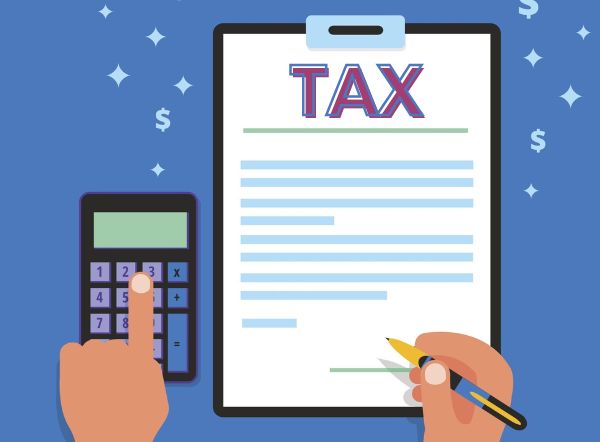Do you Know the Deadline for Filing your Income Tax Returns (ITR)?
Individuals, businesses, and other entities must submit their ITRs on time to meet tax regulations, avoid penalties, claim refunds promptly, and keep accurate financial records. Prioritizing timely filing helps you stay compliant and prevents unnecessary complications.
This article will teach you the last date to file ITRs and other crucial related details.
Also Read: Common Myths About Income Tax Returns.
What is the ITR Filing Deadline?
The last day to file your Income Tax Return (ITR) for the financial year 2023-24 (Assessment Year 2024-25) without incurring late fees is 31 July 2024. After this date, late filing of returns will result in interest and penalties. under sections 234A and 234F.
All taxpayers must remember their income tax return deadlines. The specific last date to file ITR varies depending on the taxpayer. For instance, salaried individuals are generally required to file their income tax returns by July 31st, while audited corporations have time until September 31st of the assessment year to file their ITRs.
What are the ITR Filing Due Dates for the FY 2023-24 (AY 2024-25)?
The following table lists the last dates to file ITR in FY 2023-24 (AY 2024-25):
| Taxpayer Category | Last Date to File Tax in FY 2023-24 |
|---|---|
| Individual | 31st July, 2024 |
| Association of Persons (AOP) | 31st July, 2024 |
| Hindu Undivided Family (HUF) | 31st July, 2024 |
| Body of Individuals (BOI) | 31st July, 2024 |
| Trusts, colleges, political parties (Non-Audit Cases) | 31st July 2024 |
| Trusts, colleges, political parties (Audit Cases) | 31st October, 2024 |
| Businesses (That needs audit) | 31st October, 2024 |
| Businesses that need transfer pricing reports | 30th November, 2024 |
| Revised Return | 31 December, 2024 |
| Late/Belated Return | 31 December, 2024 |
Also Read: Take Your Tax Saving Game Up a Notch with These 5 Plans.
What are the Due Dates for Paying Advance Tax Instalments for FY 2023-24?
The following table highlights the due dates for paying advance tax instalments for the FY 2023-24:
| Instalment | Due Date | Tax Liability |
|---|---|---|
| 1st | 15 June 2023 | 15% of Tax Liability |
| 2nd | 15 September 2023 | 45% of Tax Liability |
| 3rd | 15 December 2023 | 75% of Tax Liability |
| 4th | 15 March 2024 | 100% of Tax Liability |
| Presumptive Scheme | 31st March 2024 | 100% of Tax Liability |
Why is Filing Income Tax Returns Promptly Essential?
You should submit your income tax return on time as instructed by the government. You and other entities are accountable for following tax obligations by reporting income correctly, claiming deductions and exemptions and paying the exact amount of tax on time.
In addition to that, on-time filing of income tax returns helps the government perform accurate and precise tax assessment and collection, which is necessary for the government to run public services and welfare programs smoothly.
What are the Consequences if You Miss the Last ITR Filing Date?
The following are some penalties and consequences of not filing an ITR. In addition, filing returns beyond the due date will incur a late filing charge effective from the financial year 2017–18.
- Interest: Filing the ITR late means that you will have to pay an interest of 1% per month on the unpaid amount of tax, as mentioned in Section 234A.
- Late fee: If you file late, section 234F imposes a late fee of ₹5,000, which can be reduced to ₹1,000 if your total income is less than ₹5 lakh.
- Belated Return: It is also possible to file for a late return any time after the due date. However, you will be required to pay late fees and interest. On the other hand, no loss can be taken forward for the future revisions of the taxes. The year under review for filing a late return is always December 31.
- Loss Adjustment: Suppose you have suffered losses from the stock market, mutual funds, real estate or business. You can carry these losses forward into the successive year and set them off against your income. However, not filing your ITR before the due date means you missed this opportunity.
What are the Additional Consequences for Not Filing Your ITR?
If you choose not to file your ITR at all, the consequences can be severe:
- Loan Approval Challenges: India’s various banks and financial institutions might hesitate to approve your loan applications if you have not filed your ITR.
- Legal Action: The income tax department can start legal proceedings against you, which might result in imprisonment for up to seven years and a fine.
- Tax Benefits Denial: Failing to file your ITR may lead to difficulties in claiming specific tax benefits, like losses from investments.
Ultimately, filling out your Income Tax Returns (ITR) on time is essential to fulfil the government’s rules and avoid fines. The last date to file ITR for 2023-24 is July 31, 2024. Paying taxes on time not only satisfies your tax obligations but also helps the government to make a better assessment and collect the taxes in a smooth way that makes an easy operation of public services possible.

